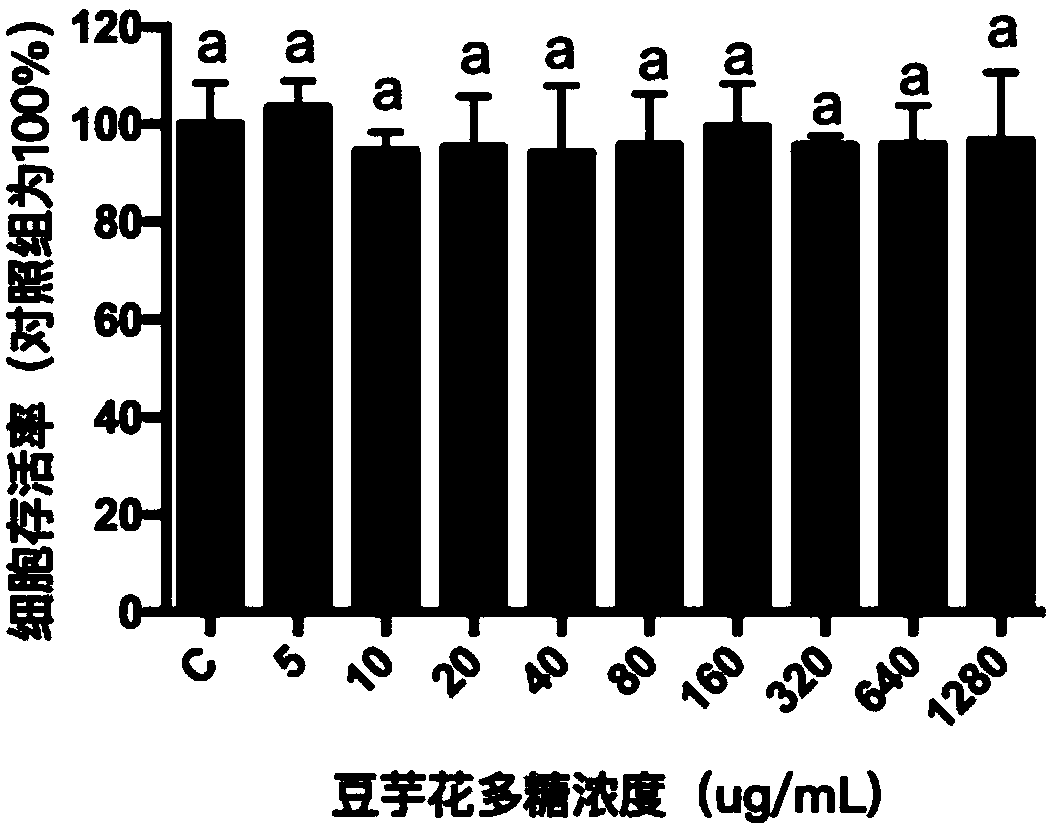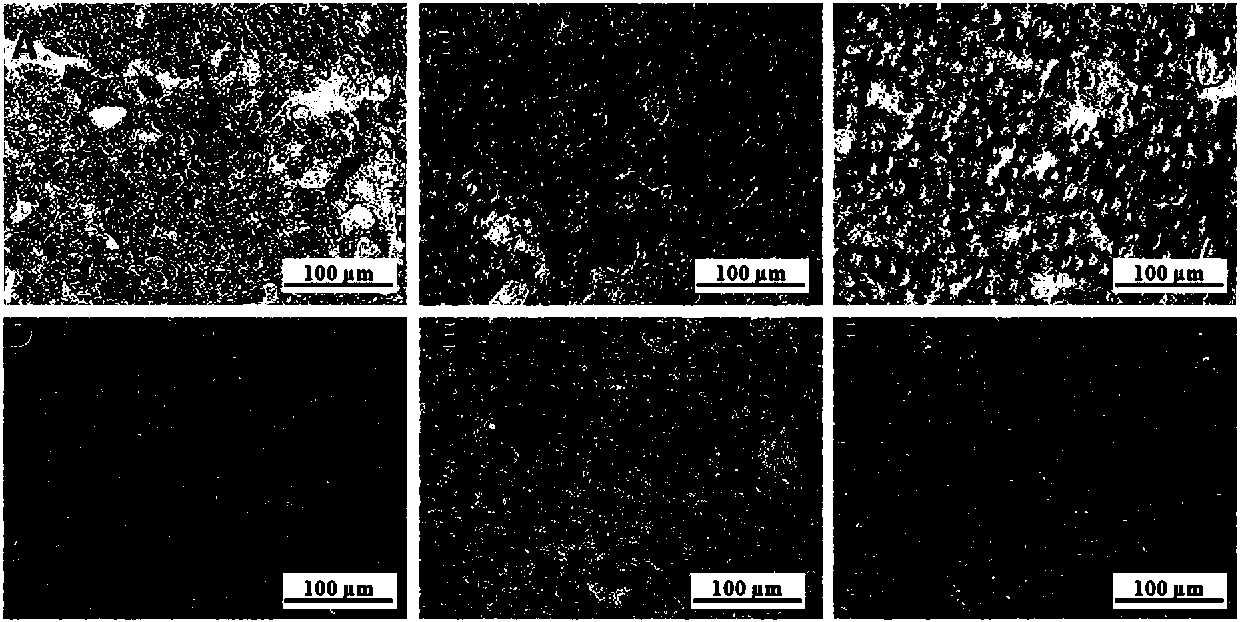Application of polysaccharide of flowers of Apios americana Medikus to reduction of lipidosis in hepatocytes
A lipid deposition and hepatocyte technology, applied in the field of medicine, can solve the problems of easy rebound and lower body immunity, and achieve the effect of expanding the application field, reducing the lipid deposition of HepG2 cells, and having a good development prospect.
- Summary
- Abstract
- Description
- Claims
- Application Information
AI Technical Summary
Problems solved by technology
Method used
Image
Examples
Embodiment 1
[0066] Embodiment 1, a kind of preparation method of taro flower polysaccharide, carries out following steps successively:
[0067] 1), preparation of taro flower polysaccharide crude product:
[0068] According to the solid-liquid ratio of 1g:5ml, weigh 100g of taro flower and add 500mL of distilled water, extract in 90°C water bath for 80min (enzyme inactivation is also achieved during extraction), then beat, and then centrifuge (4000r / min for 15min), and Suction filter the supernatant obtained by centrifugation and collect the filtrate;
[0069] Use the filter residue obtained by centrifugation to replace the taro flower, repeat the above process of adding distilled water, then extracting (90°C water bath for 2 hours), beating, and centrifuging twice, and combine the filtrate obtained by centrifuging and suctioning for three times to concentrate to the original volume. 1 / 5 of the concentrated solution.
[0070] Under the condition of stirring, add ethanol (pure ethanol) t...
PUM
 Login to View More
Login to View More Abstract
Description
Claims
Application Information
 Login to View More
Login to View More - R&D
- Intellectual Property
- Life Sciences
- Materials
- Tech Scout
- Unparalleled Data Quality
- Higher Quality Content
- 60% Fewer Hallucinations
Browse by: Latest US Patents, China's latest patents, Technical Efficacy Thesaurus, Application Domain, Technology Topic, Popular Technical Reports.
© 2025 PatSnap. All rights reserved.Legal|Privacy policy|Modern Slavery Act Transparency Statement|Sitemap|About US| Contact US: help@patsnap.com



